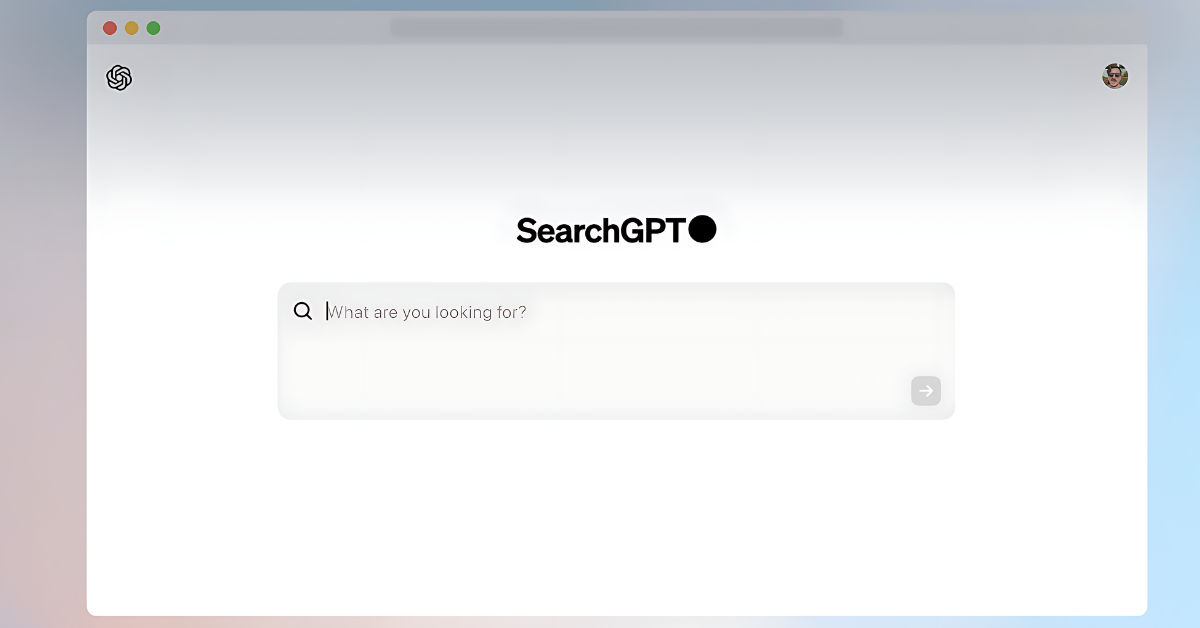OpenAI's SearchGPT is set to change online search by providing real-time information and integrated responses, directly challenging Google's traditional search model. This new AI-powered search engine promises to deliver concise answers with relevant citations and images, enhancing the user experience. With the backing of Microsoft and the innovative use of GPT technology, SearchGPT aims to provide a more efficient and user-centric approach to finding information online.

OpenAI is making waves with its latest innovation, SearchGPT, set to challenge not only newer players like Perplexity but also tech titans like Google and Bing.
Unveiled on Thursday, SearchGPT is designed to deliver “timely answers” by tapping into various web sources. The interface is similar to ChatGPT, allowing users to type queries and receive information, images, and relevant links. Follow-up questions and related searches can be easily explored through a sidebar.
To enhance search accuracy, SearchGPT incorporates location data, displaying results like nearby restaurants or weather forecasts. Users can share precise location details via a settings toggle, and OpenAI mentions that general location data is shared with third-party search providers.
SearchGPT, powered by OpenAI models GPT-3.5, GPT-4, and GPT-4o, is initially available to a select group of users and publishers. OpenAI plans to integrate some SearchGPT features into ChatGPT in the future.
OpenAI's goal is to simplify web searches. They state, “Getting answers on the web can take a lot of effort, often requiring multiple attempts to get relevant results. We believe that by enhancing the conversational capabilities of our models with real-time information from the web, finding what you’re looking for can be faster and easier.”
Real-Time Information: SearchGPT will pull real-time data from the web, ensuring users receive the most up-to-date information.
Integrated Responses: Instead of navigating through multiple pages, users will get a comprehensive response with relevant images and citations, all in one place.
User-Centric Design: The platform is built to prioritize user needs, presenting information directly rather than a list of links and ads.
While Google remains the go-to search engine for most users, its traditional format of providing numerous links and ads can be cumbersome. SearchGPT, on the other hand, focuses on synthesizing information in a concise manner, presenting the most pertinent details upfront. This approach is designed to save time and reduce the effort needed to find specific information.
Google has been integrating AI into its search capabilities with tools like the Search Generative Experience (SGE) and its AI chatbot, Gemini. However, OpenAI's partnership with Microsoft and the incorporation of GPT technology into Bing has set a new benchmark. Bing's use of GPT-4 for enhanced search summaries and the innovative features of Perplexity AI, which also integrates real-time information with a conversational interface, highlight the shifting dynamics in the search engine market.
AI search engines have faced notable failures: Google's AI Overviews suggested dangerous actions, Arc Search made bizarre claims, Genspark recommended weapons, and Perplexity copied news articles without proper credit. These missteps highlight the risks of AI-generated content affecting publisher traffic and reliability.
OpenAI aims to position SearchGPT as an ethical search tool, emphasizing “prominent citations and links” to publishers and collaborating with them to design the search experience. They also allow website owners to control their content's appearance in search results. OpenAI assures, “SearchGPT is about search and is separate from training OpenAI’s generative AI foundation models. Sites can be surfaced in search results even if they opt out of generative AI training. We are committed to a thriving ecosystem of publishers and creators.”
While OpenAI's past actions, such as scraping YouTube transcripts without permission, have led to skepticism, the true impact of SearchGPT will become clear as it unfolds. The journey ahead promises to be intriguing as OpenAI redefines the search landscape.
OpenAI's SearchGPT is set to offer a significant alternative to Google's search engine. By focusing on delivering direct, real-time answers with integrated citations and images, SearchGPT aims to transform the user experience and set a new standard in online search.
Sign up to gain AI-driven insights and tools that set you apart from the crowd. Become the leader you’re meant to be.
Start My AI Journey
ThatsMyAI
3 October 2024